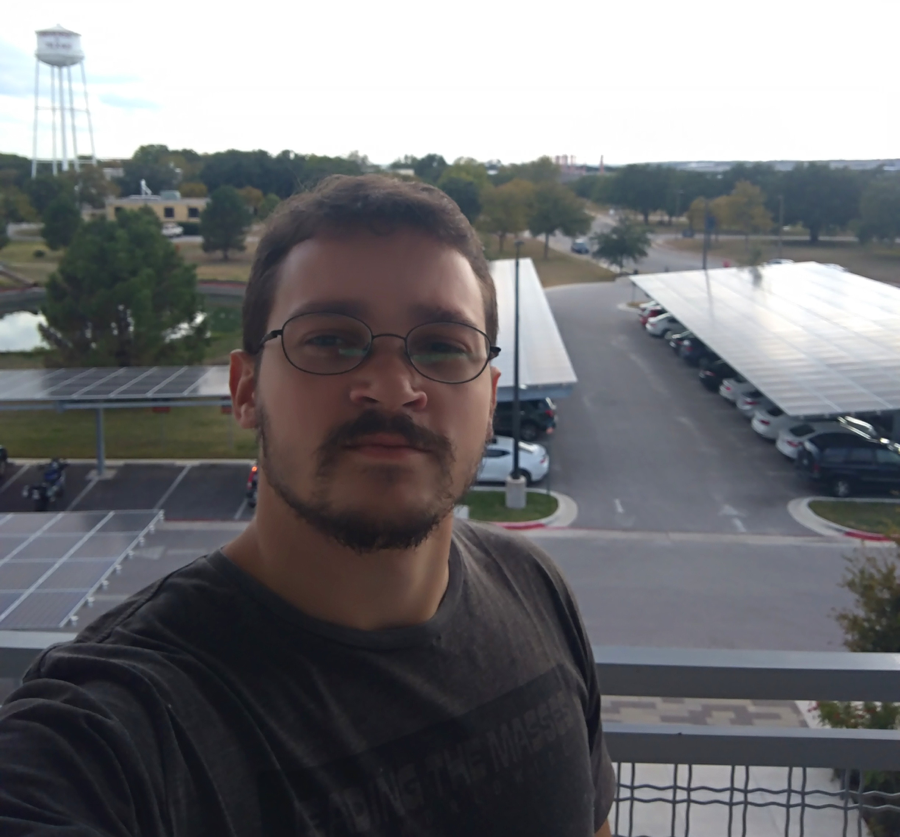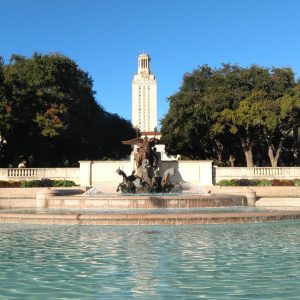In the Fall of 2019, the UT Austin Portugal Program welcomed its last participant of the Advanced Computing Training Program to the Texas Advanced Computing Center (TACC).
In 2018, the Program opened two calls for an intensive training aimed at fully explore high-performance computing technologies and services, in order to accelerate the tasks of digital modelling and simulation, as well as big data processing and visualization applied to any scientific domains. João Dias was one of the admitted candidates.
From October to December 2019, João was a visiting scholar at TACC, at The University of Texas at Austin (UT Austin), where he worked with its Visualization group. Prior to enrolling in the UT Austin Portugal Program, he received an MSc in Informatics Engineering at the University of Minho, with a specialization in Parallel & Distributed Computing and Bioinformatics.
João applied for the Advanced Computing Training Program so he could have the chance to expand his knowledge in the fields of High-Performance Computing (HPC), Machine Learning and Data Visualization. He also saw this opportunity as a way to better prepare for future endeavors in the labor market.
Freshly returned from Austin, we spoke to João about this exciting time.
– What motivated you to apply for the Advanced Computing Training Program?
Many of my former colleagues at the University of Minho had participated in the Summer Internship at the Institute for Computational Engineering and Sciences (ICES) of The University of Texas, highly regarded their experience. The opportunity to work at TACC after my Master’s seemed like the perfect opportunity to improve and refine my HPC skills.
– Your main research interests include Data Mining, Visualization and Machine Learning. What type of research work were you involved in?
The project I was assigned to focused on the gathering and analysis of data dumps from the GRACE satellites. It was divided into 2 particular phases. The gathering, pre-processing and visualization of the collected data, and the feeding of a predictive model with the same data. I would greatly appreciate the opportunity to further upgrade my studies in this last stage, as I did not get to explore as deeply into the topic as I would have liked to. Nonetheless, it was a valuable and rewarding experience.
– You completed your Master’s in Computer Engineering at the University of Minho prior to embarking in this journey. What impact will this experience at TACC have on your career moving forward?
I dare to say that, at a professional level, this was one of the best experiences I could ever had. Having only recently graduated from my Master’s program, this experience enriched my previous knowledge and allowed me to explore new subjects and tools. Additionally, I relished the opportunity to work in a state-of-the-art facility with people that are at the forefront of their research areas. This experience broadened my horizons and undoubtedly gave me a clearer picture of what I want for my professional future, while helping me develop additional skills to facilitate my endeavors.
– If you had to share the 3 biggest lessons you take away from this entire experience with future ACTP participants, what would they be?
Learn to anticipate future challenges, in both personal and professional dimensions, and prepare accordingly, so that you can meet them head-on and get the most from them. Keep an open mind. Austin is a very quirky city – there is even a slogan that states “Let’s keep Austin weird”. Austinites are super-accessible people that will usually greet you in the street with a smile on their faces. Don’t be afraid to explore and enjoy new places. Austin is known for being “The Live Music Capital of the World” and I can personally attest to that.
____
Curious to know what a day in the life of a Portuguese researcher at TACC looks like?



